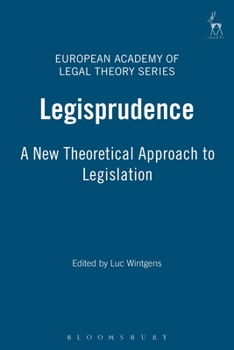Legisprudence: New Theoretical Approach to Legislation
(Part of the European Academy of Legal Theory Series)
The unifying idea behind the essays in this volume is that, although legislation and regulation are the result of a political process, legislation and regulation can be the object of theoretical study. The focus is on problems that are common to most European legal systems, and the approach involves applying to legislative problems the tools of legal theory (hence 'legisprudence'). Traditional legal theory deals predominantly with the question of the application of law by the judge. Legisprudence enlarges the field of study so as to include the creation of law by the legislator.
Following this new approach a variety of new questions and problems are raised, including the validity of norms, their meaning, and the structure of the legal system, problems that are traditionally dealt with from the perspective of the judge or are taken for granted by classical legal theory. However, by shifting the attention to the legislator, the same questions arise, though traditional legal science covers many of these questions with the cloak of sovereignty. The original essays published in this volume expose and develop a range of new insights into the relationship between legislative problems and legal theory in a way which will engage and interest many legal scholars around the world.Format:Hardcover
Language:English
ISBN:1841133426
ISBN13:9781841133423
Release Date:November 2002
Publisher:Hart Publishing
Length:160 Pages
Weight:0.86 lbs.
Dimensions:0.4" x 6.1" x 9.2"
Customer Reviews
0 rating





